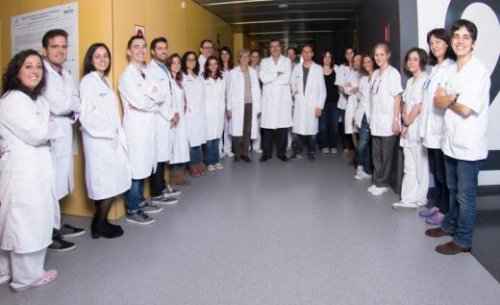IRBLleida and UdL researchers discovered the mechanism that creates resistance to therapy in endometrial cancer
This discovery may provide new strategies to block autophagy, which is the cause of this resistance
Lleida, February 3rd, 2017
Researchers from the Biomedical Research Institute of Lleida Foundation Dr. Pifarré (IRBLleida) and the University of Lleida (UDL) have taken a step forward in reducing drug resistance in cases of endometrial cancer. Studies show that resistance to sorafenib (a drug used in other types of cancer and has always been a candidate to be used in the endometrial cancer) is caused by autophagy, a mechanism by which cells tumor cells survive. This discovery may provide new strategies to block autophagy and therefore may strengthen the effectiveness of the drug in cases of endometrial cancer. Thanks to the results of this research, carried out by generating tumors in vivo endometrial cancer in the laboratory may be carried out in future trials in people.
Endometrial cancer is the most common gynecological cancers in the western world and represents more than 280,000 cases a year. In Lleida diagnosed 30 new cases annually. The annual incidence of this cancer has increased 21% since 2008. The Group IRBLleida Pathology Oncology focuses on the study of this type of cancer, along with the study of alterations molecular thyroid cancers and skin.
The article was recently published in the journal Autophagy has been working together with professionals UdL IRBLleida the University Hospital Arnau de Vilanova in Lleida, the New York Genome Center in New York, the 'Newcastle Institute of Genetic Medicine, University Hospital of Bellvitge Biomedical Research Institute (IDIBELL), the Herbert Wertheim College of Medicine in Miami and the Catalan Institute of Oncology (ICO).







